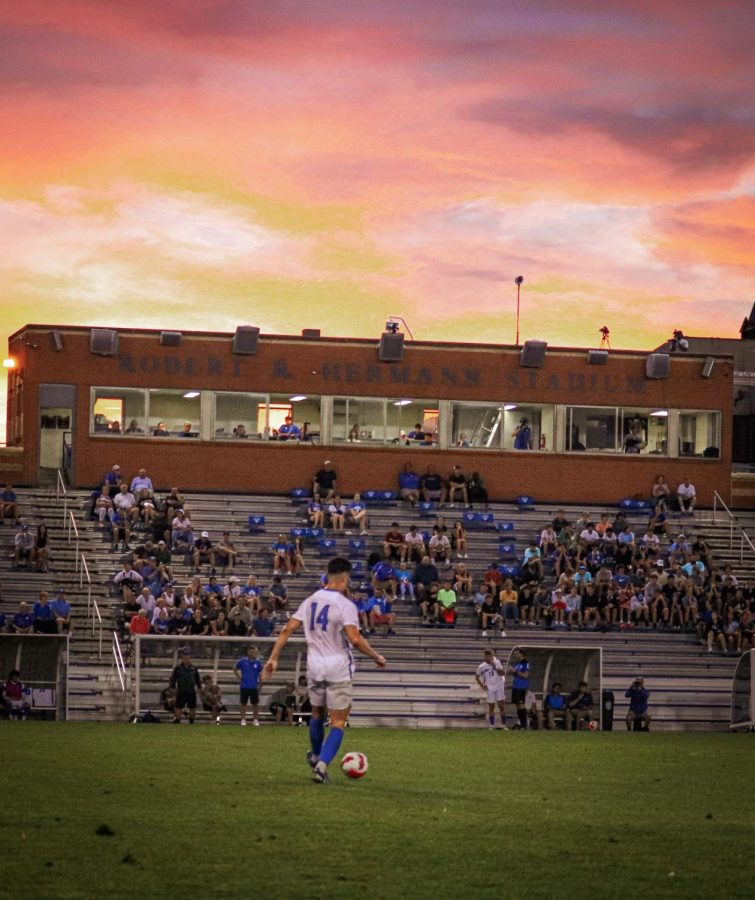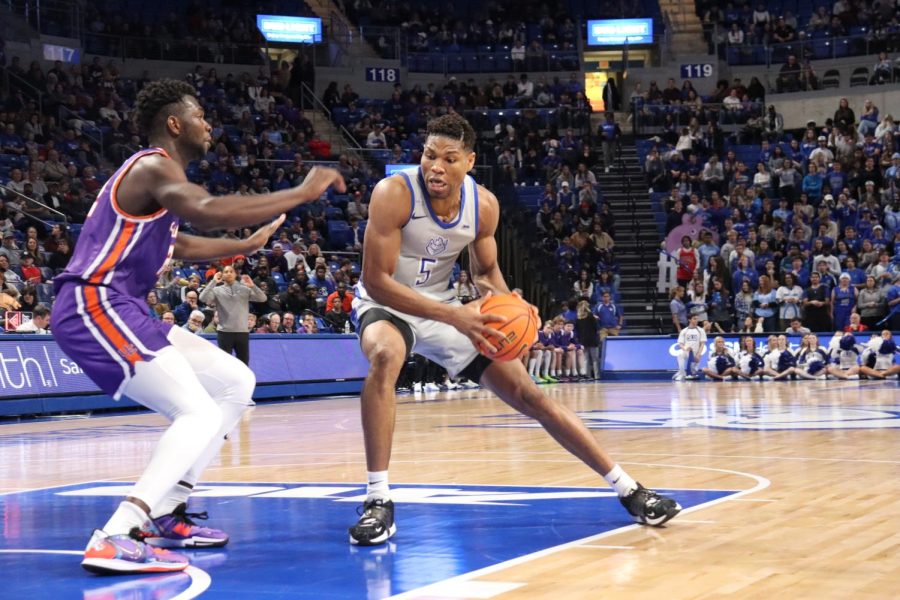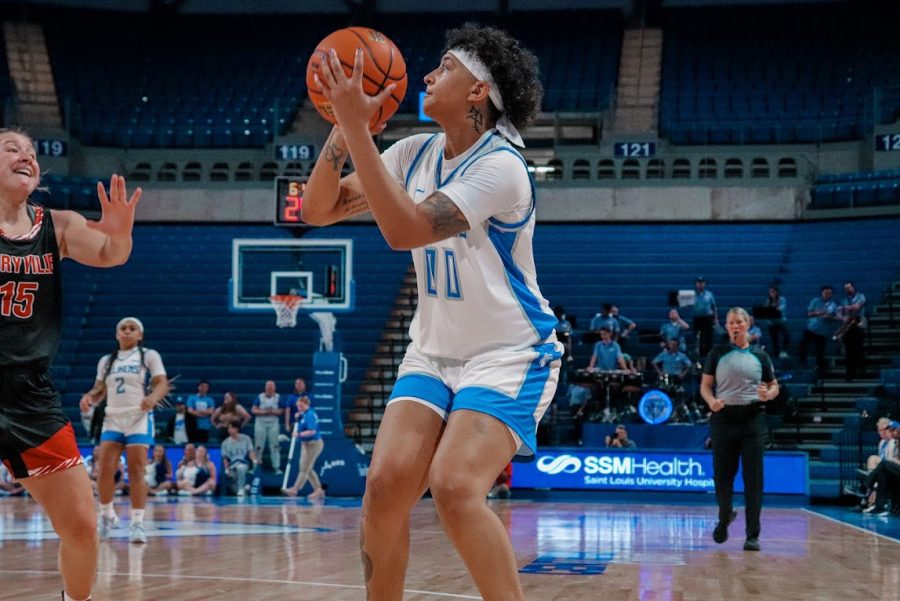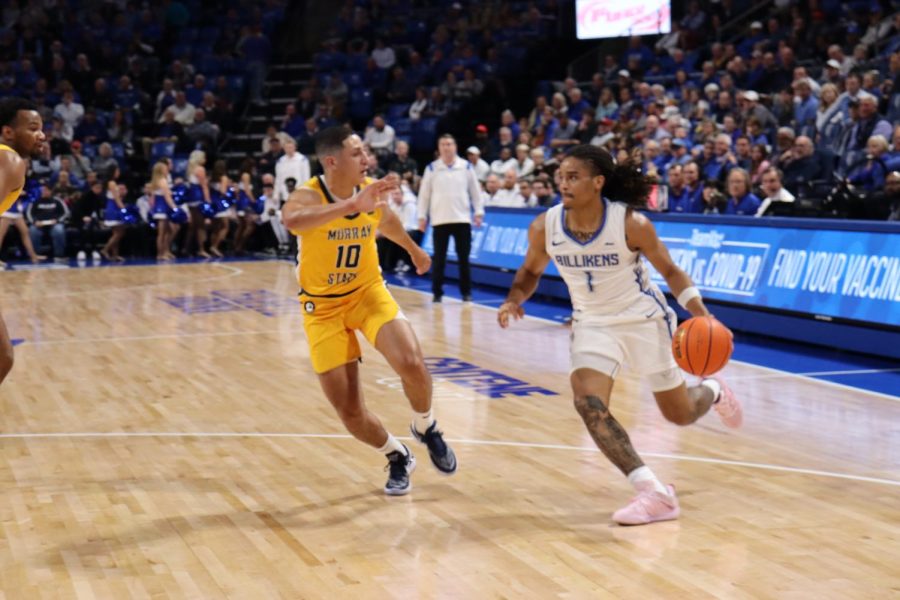Over the years, many Saint Louis University parking lots became the casualties of campus expansion. John & Lucy Cook Hall, the lower level of the Simon Recreation Center, the Village Apartments and the SLUruba outdoor pools are just a few of the well-known campus spots that were once parking lots.
As a result, like many universities located in a city environment, SLU is tight on parking. SLU’s office of Parking & Card Services (PCS) is charged with ensuring a little campus parking space goes a long way to serve the vehicular needs of the SLU community.
In 2000, SLU’s parking system underwent major changes to cover the costs of PCS and to change how parking spaces are reserved. Beginning with the Laclede Garage in 1992, SLU opened four new parking garages. Though the garages increased the amount of parking space, the debt from these projects prompted a price increase of 65 percent in one year for all parking permits.
“[It was] set down that we should be self-sufficient; the money we were bringing in should cover the expenses that we have and with building the four garages, that’s a very big expense,” director of PCS Ann Gioia said.
A new preference system was also implemented to change the hierarchy of parking permits. Lots near academic buildings, which had been set aside for faculty and staff, were opened to anybody and became “premium” and “reserved” lots. “It’s a first-come, first-serve basis based on what you want to pay; it’s a more fair system,” Gioia said.
Part of the idea for the parking choice program came from students. When the lower-level of the Rec Center was still a parking garage, students studying the parking system for a psychology class said PCS should charge more for these in-demand spaces. “That kind of opened the door for the whole parking choice program where we had lots that were higher-priced,” Gioia said.
Currently, SLU maintains around 9,000 parking spaces, with 5,475 spaces located in garages. Around 8,000 of the spaces are occupied, with a surplus of 500 spaces on each campus.
Though the system has surplus spaces, Gioia said the administration and PCS would like to add additional parking west of Spring Street due to the high volume of residence halls on that part of campus.
Current prices for parking permits range from $280 per year, for general evening parking, up to $1,410 per year for some of the reserved lots. A Parking & Transportation Advisory Committee reviews parking prices every three years and decides if a percentage increase in price should be implemented.
Student Government Association, the Faculty Senate and the Staff Advisory Committee each contribute two members to the advisory committee.
Jimmy Meiners, a junior and one of the SGA representatives on the committee, said parking is an area SGA can really have an impact on because it is something “a lot of students have to deal with.”
Aside from the committee, the Office of the Treasurer is also involved in the review process to add in the outstanding debt from the four parking garages. Gioia said the garages are on 30-year loans, but the life expectancy of a parking garage is only 20 years due to wear and tear on the structure.
To prolong the life of the garages, damaging chemicals aren’t used in maintenance work, and student events are prohibited from being hosted in the garages. “I need that garage to last as long as it can or we’re not being cost-effective,” Gioia said.
Revenue from parking passes is also utilized for upkeep of garage and surface lots, including striping, sealing and maintaining fencing and access to storm sewers. A new parking gate system is nearly finished, which took a large part of the revenue.
SLU’s lots and garages also must pass building standards set down by the City of St. Louis. Other than an impervious surface fee, which is a fee on water run-off, PCS does not have many fees from the city. “Truly, the debt is the largest part of our budget,” Gioia said.
She also said PCS does not use enforcement in the form of tickets, towing and booting as a revenue generator. “It’s truly just for compliance, to try to get everybody to abide by the rules.” Methods of enforcement vary by the severity of the violation. Generally, less severe violations result in a ticket or immediate boot (a device placed on the tire of a car to immobilize the vehicle). A more severe violation, such as parking in a disabled space, will result in a ticket and a tow.
Lots and garages are patrolled by two PCS staff members, with help from the Department of Public Safety and Security Services.
“Although we do not write parking tickets or tow vehicles for violations, we do notify PCS if [we] observe a serious violation,” DPSSS Sergeant Pasquale Signorino said.
Occasionally, DPSSS may be asked to tow vehicles off lots reserved for special events to another lot for safekeeping. “We generally do this under the direction of PCS, and the owners are directed to them for retrieval of their autos,” he said.
According to PCS, around 95 percent of permit holders never violate parking rules, and some are just one-time violators. PCS occasionally voids some tickets after having a conversation with the permit holder. “It’s a learning opportunity, and we will do that,” Gioia said.
Though PCS tries to work with violators, some students take issue with what constitutes a violation. Last semester Jeanette Pieper, a freshman in the Doisy College of Health Sciences, received a ticket for not having her hazard lights on while her vehicle was parked in the circle drive behind Griesedieck Hall.
“I realize that SLU needs to enforce their parking rules, but a fine of $75 for not turning on your hazard lights is a bit ridiculous to me,” she said. “I feel like there are bigger issues on campus that SLU needs to be focusing on.”
Students can appeal parking sanctions through a Parking Appeals Committee. Meiners also sits on this committee, and though he said the decisions are objective, “[it can be] really hard to make that decision because the appeals are heart-wrenching sometimes. You hear some really interesting stories.”
Meiners believes more information on SLU parking policies can be communicated to the general campus population. “[We] do need more communication from PCS, so students know what exactly is happening and where their money is being spent,” he said.
Amelia Blanton, a senior in the College of Arts & Sciences, also recently had an issue with a lack of communication about parking rules. She has a general resident parking pass, which usually allows her to park in the Olive Garage.
The Olive Garage is utilized for events at Chaifetz Arena, and when a friend tried to park Blanton’s car in the garage during a basketball game, he was told he would have to pay out of pocket to park, even though the vehicle had a hangtag.
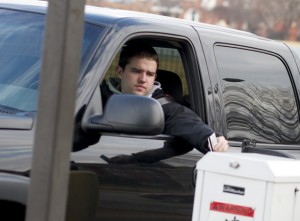
To combat these communication issues, Gioia worked with SGA to get a resolution passed to allow PCS to email students and staff. Gioia said this will allow her office to get information about rules and regulations to parkers directly.
Although PCS has utilized the same parking system since 2000, they are open to increased dialogue about parking from the SLU community. “We’re always looking to see if there’s a better way to do [parking] and still be able to maintain the revenue, and we’ve not found anything,” Gioia said. “We’re always open to suggestions and ideas.”






